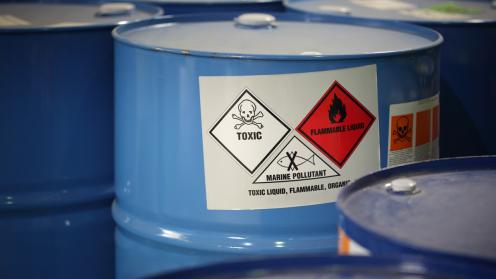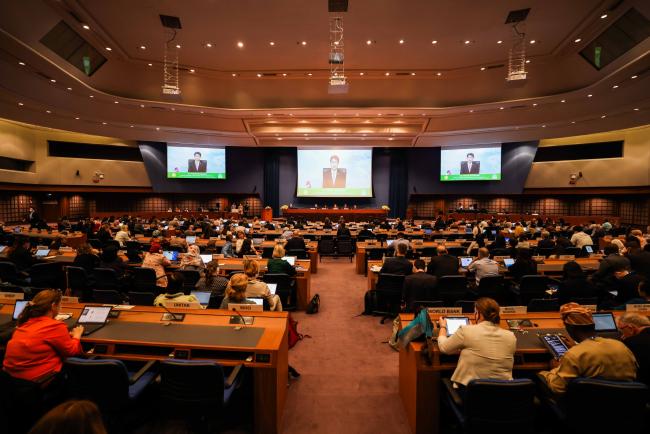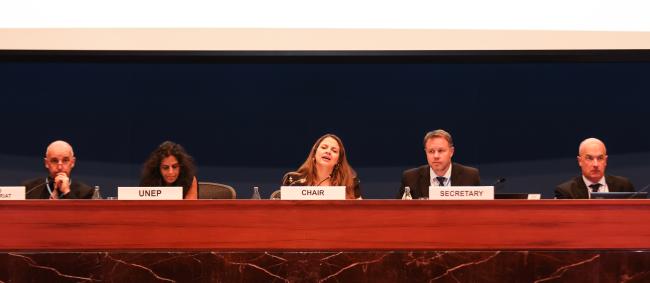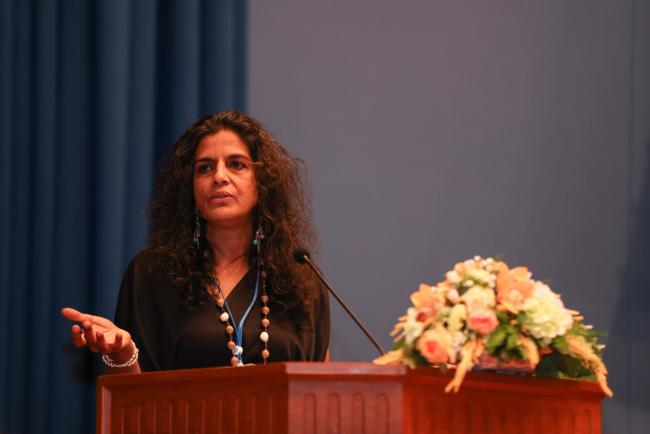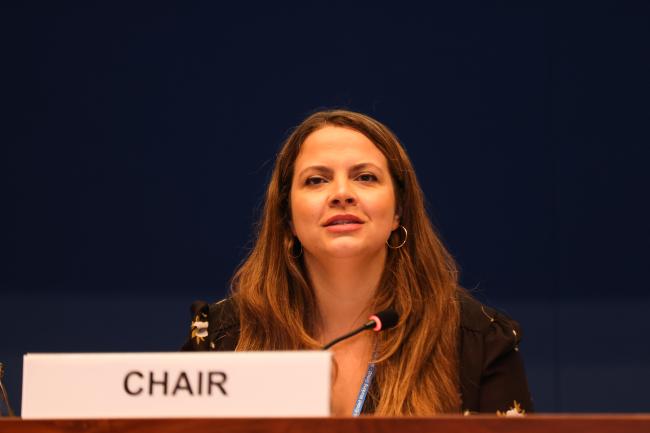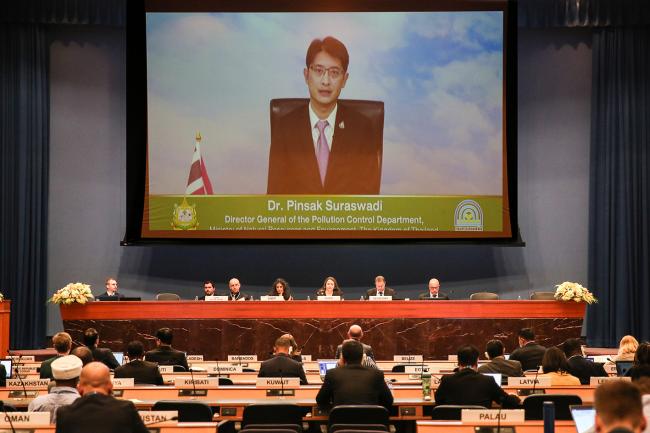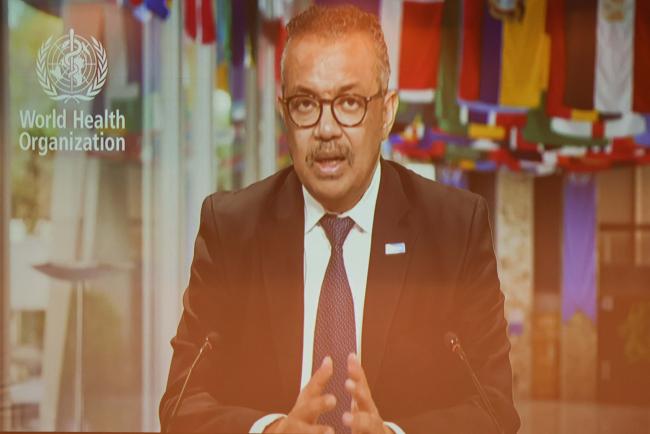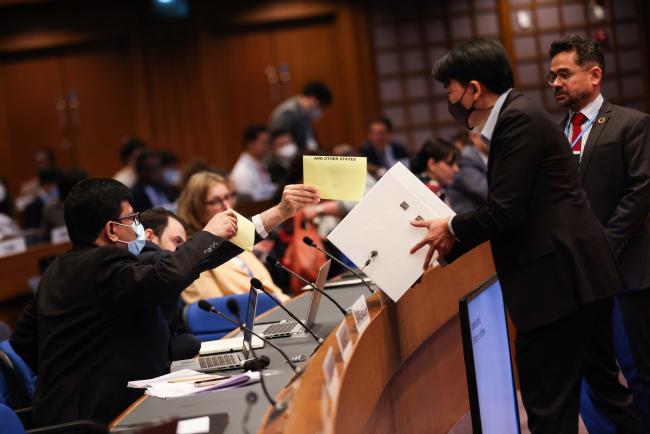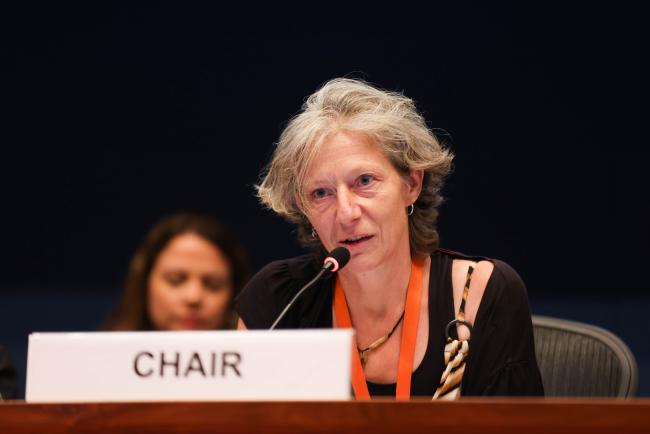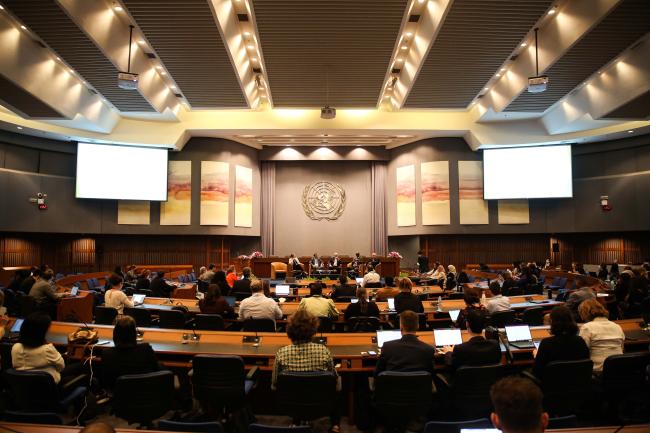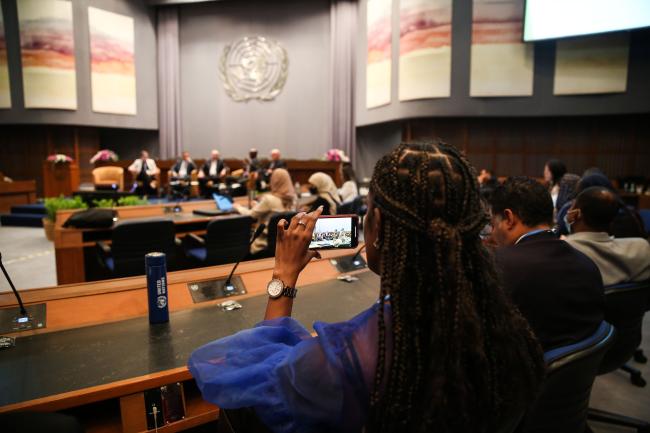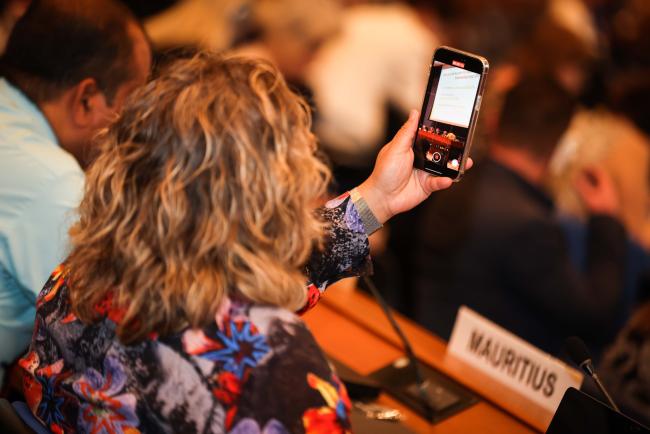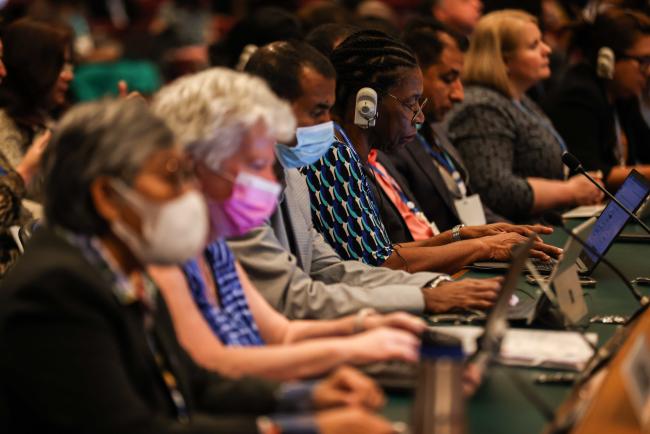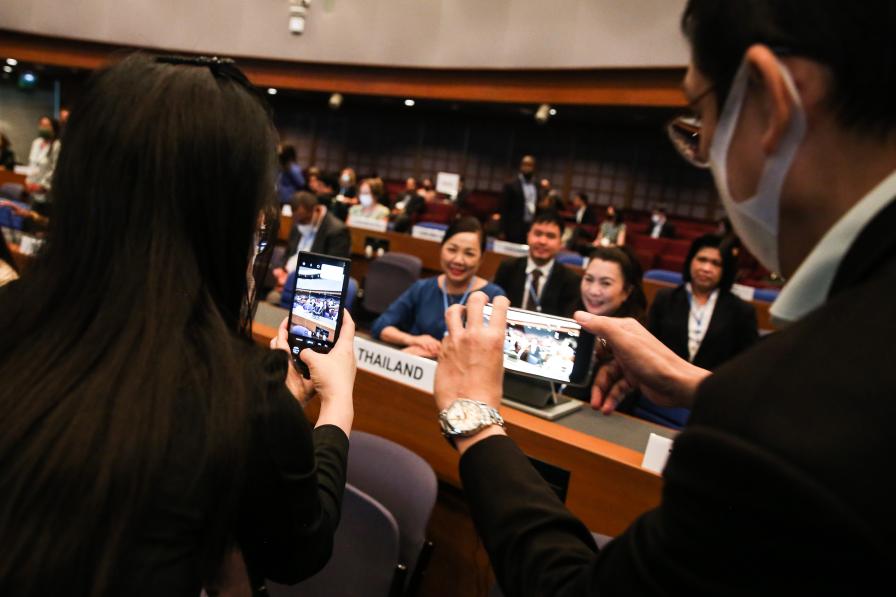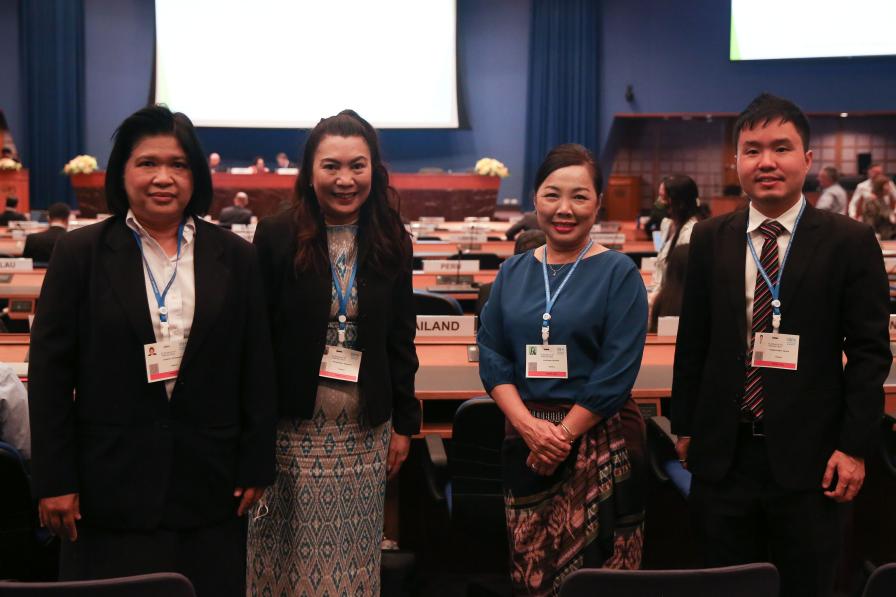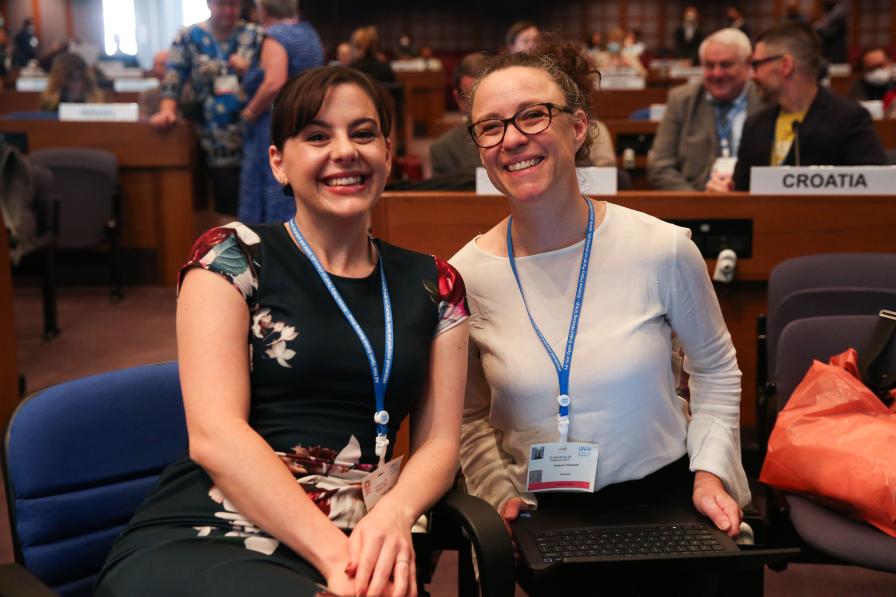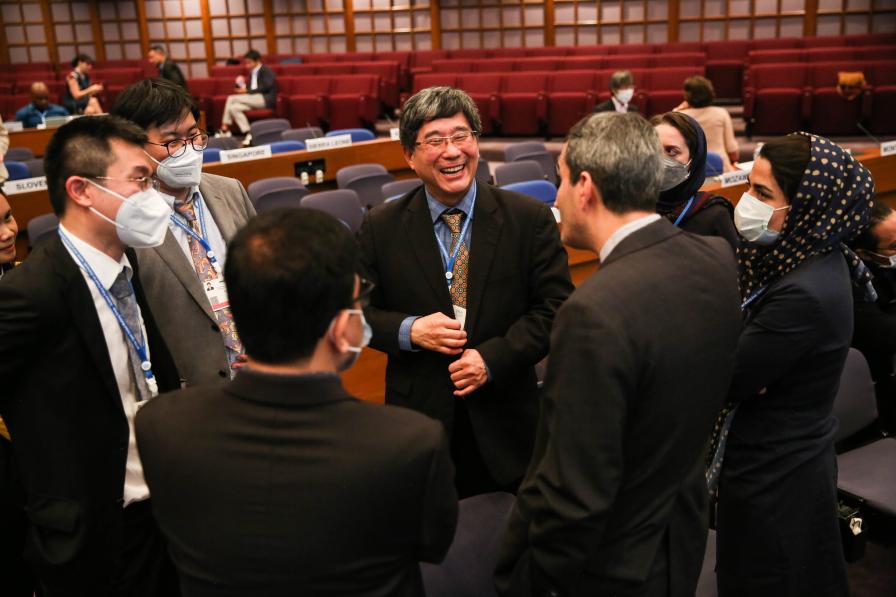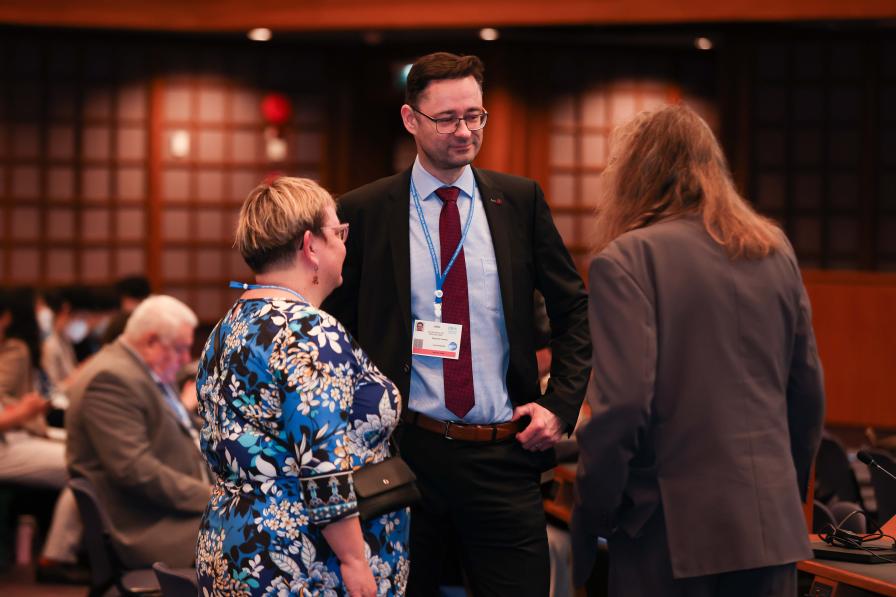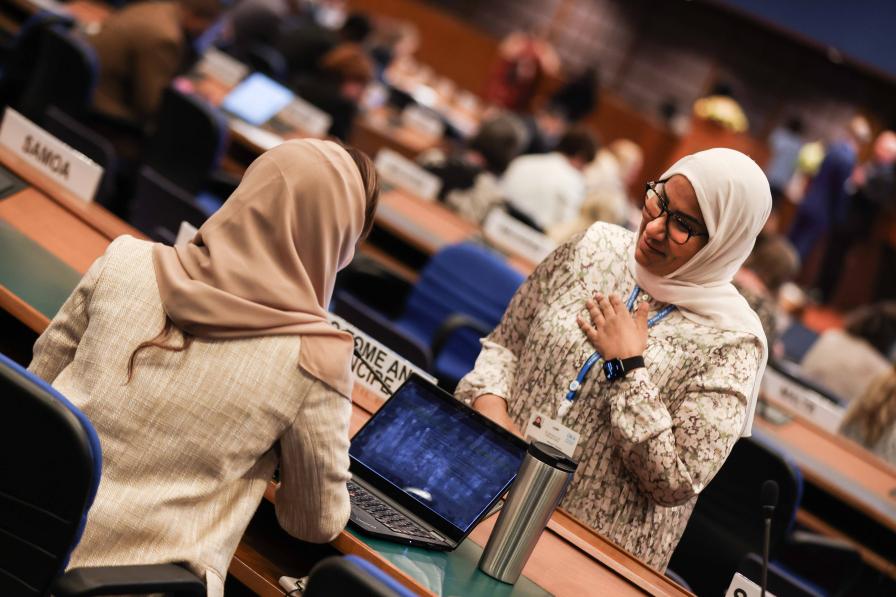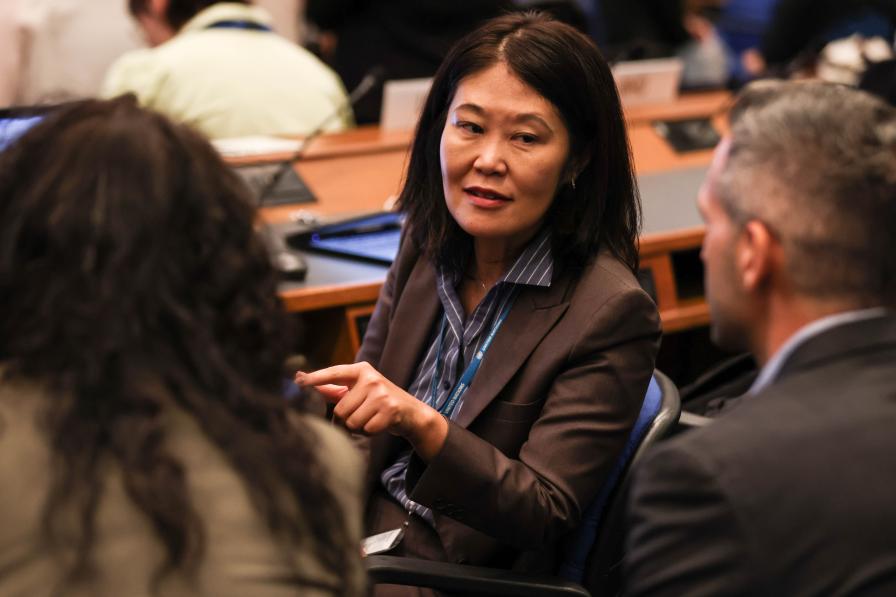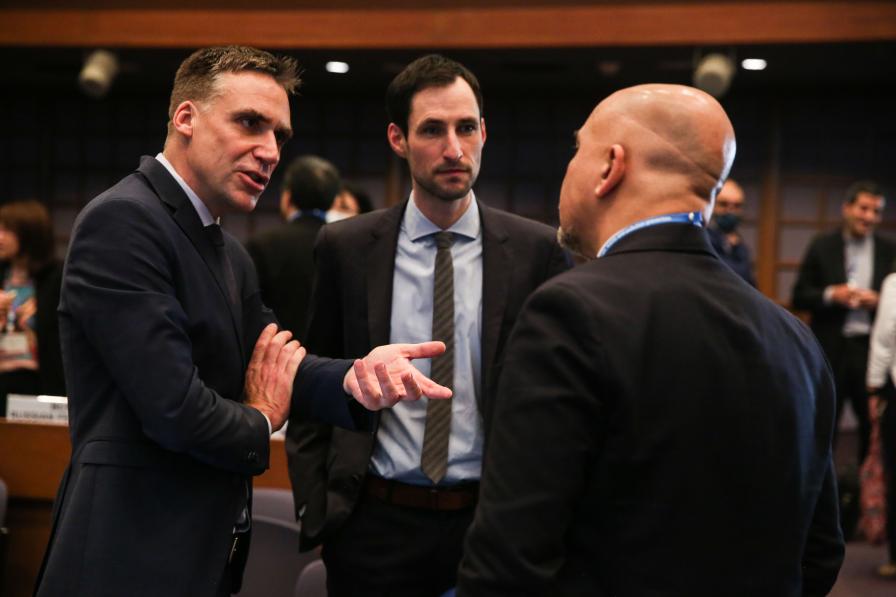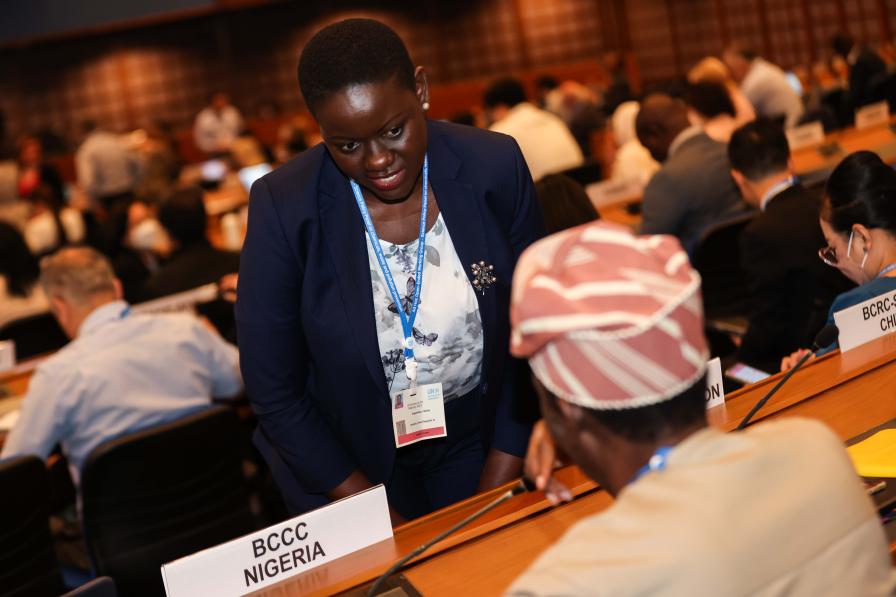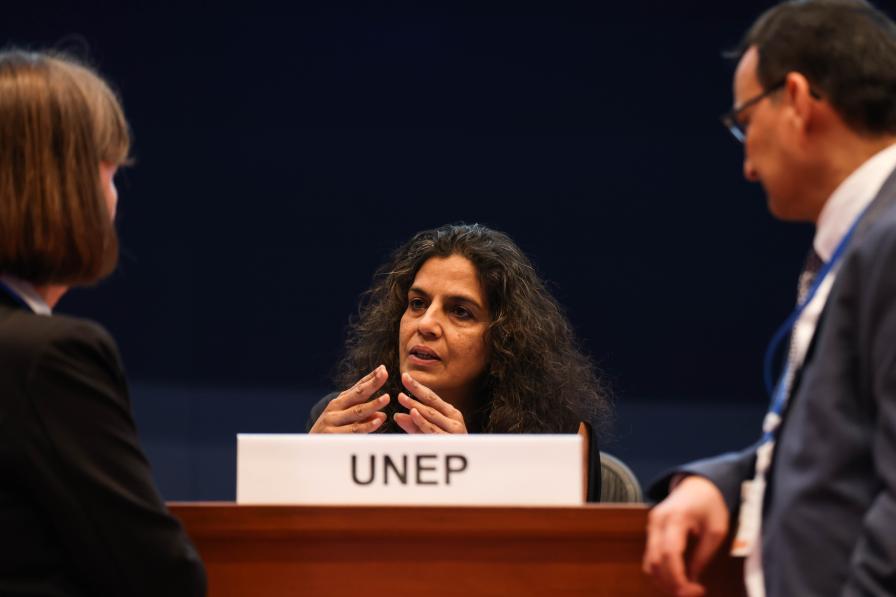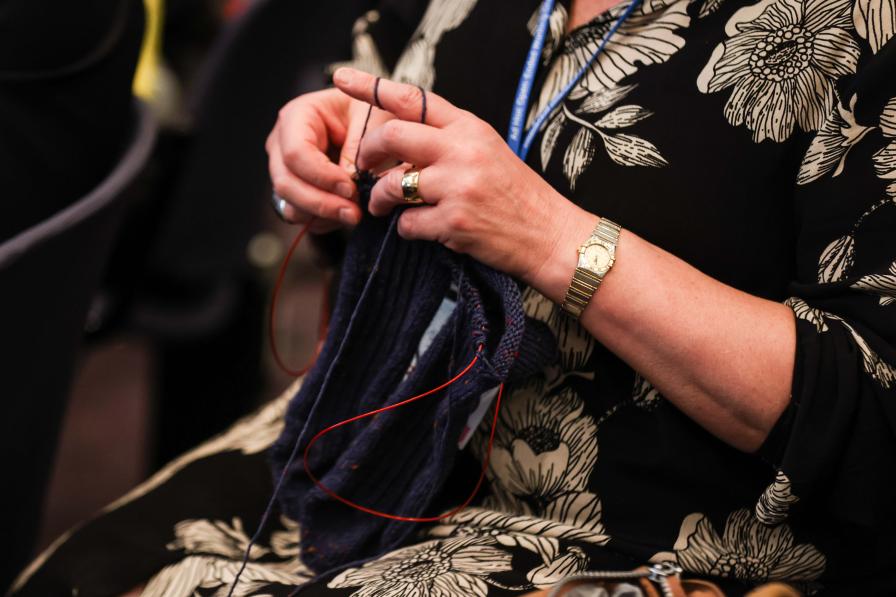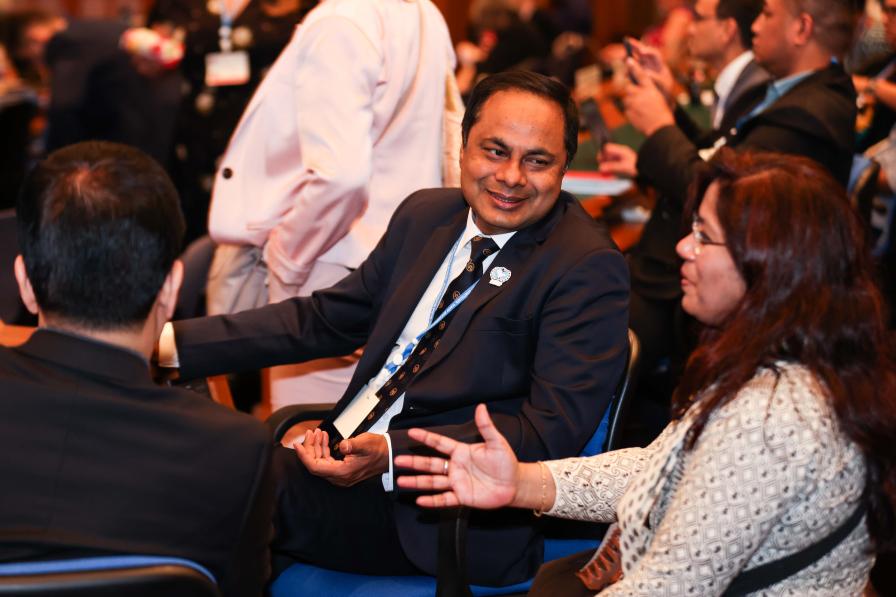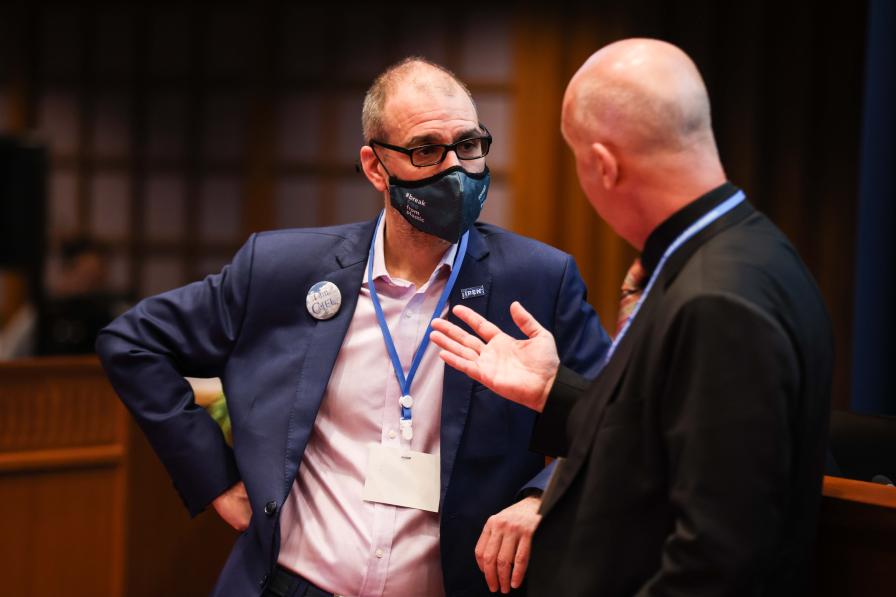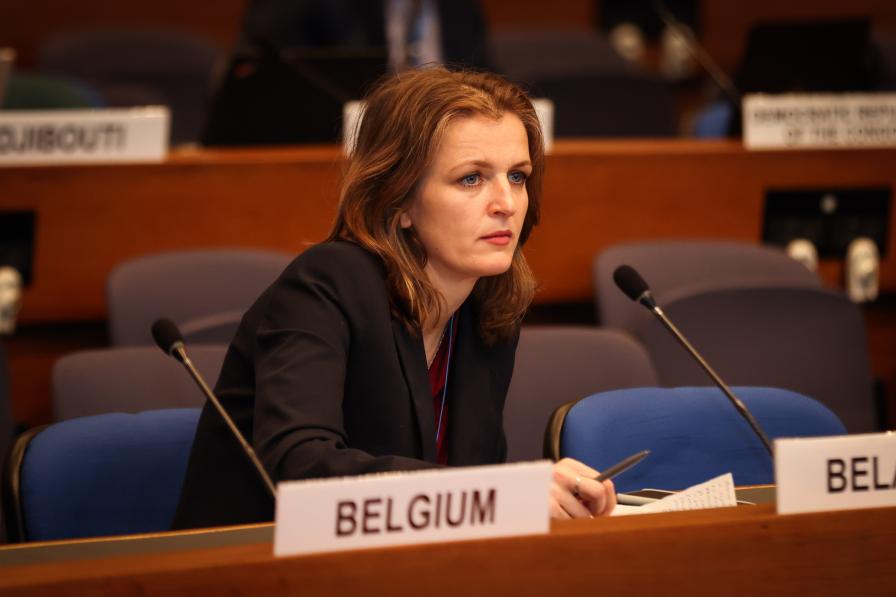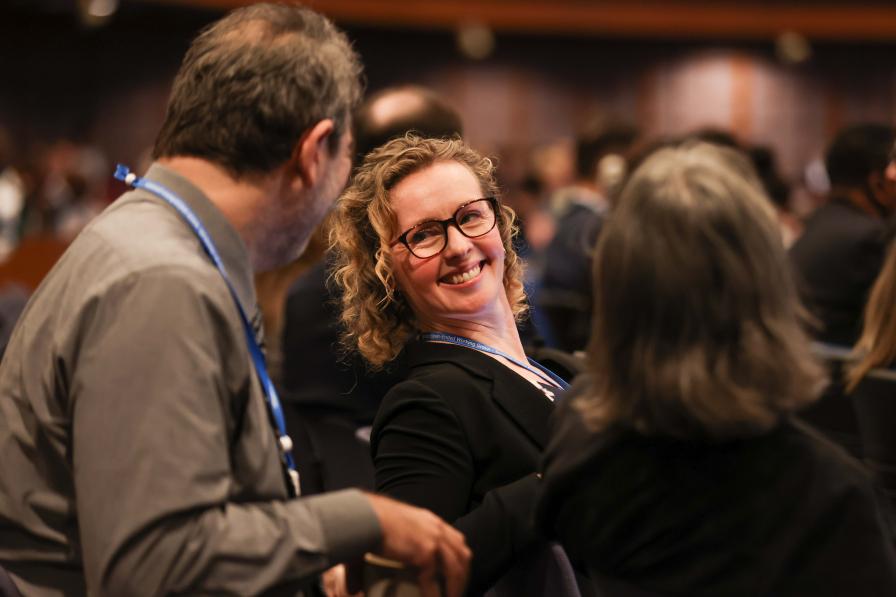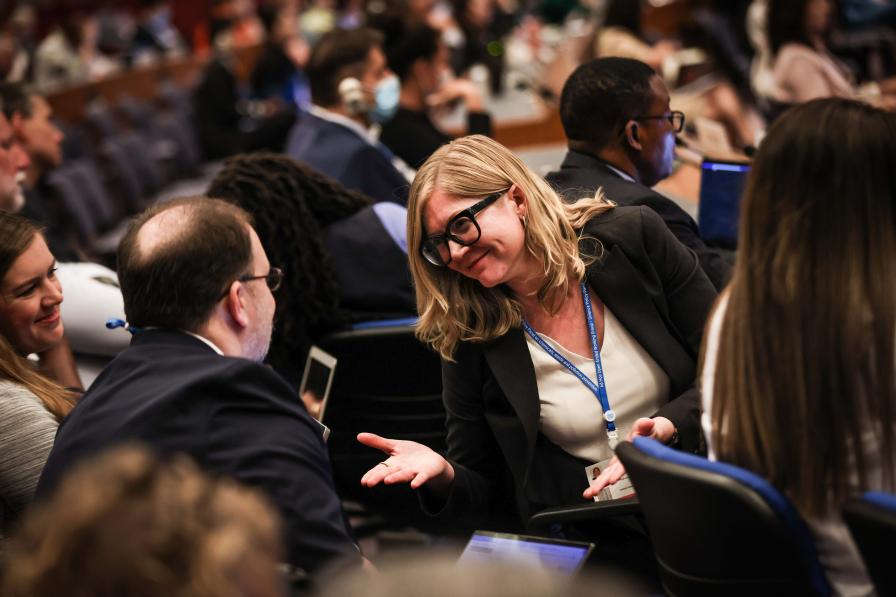Chemicals and wastes affect our everyday lives, from the clothes we wear to the air we breathe. The scale of the problem is both vast and invisible. Policymakers need a global understanding and set of options to contribute to the sound management of chemicals and waste, and to prevent pollution.
Want to dive deeper? Read the full Earth Negotiations Bulletin daily report.
Designing such an interface between science and policy is the task ahead for delegates at the resumed first session of the Open-ended Working Group (OEWG 1.2). The linkages between biodiversity, climate change, and pollution were repeatedly referenced. These three crises reinforce one another. Climate change and biodiversity already have science-policy interfaces drawing widespread attention to the scale of their respective problems.
The meeting started slowly, focusing on procedural issues. Process matters. A transparent process builds trust, among parties and, ultimately, in the outcome. Sound processes also ensure clarity on the work to be completed and by whom. To select the Chair, delegates proceeded with a vote by secret ballot. After an extended process, designed to ensure transparency, Gudi Alkemade, the Netherlands, was elected as OEWG Chair.
A lunchtime “deep dive” session kickstarted the substantive discussions. It focused on the scope of the panel, which may be extremely wide: chemicals, waste, and pollution are each broad categories of substances and challenges. Participants highlighted the role of social sciences, natural sciences, Indigenous knowledge, and science communication. Others stressed the need to consider the circumstances of developing countries, particularly to strengthen their relationship with the scientific community to build capacity and respond to emerging challenges.
The question of scope also arose in the afternoon’s plenary discussions. Many countries noted the benefits of a broad scope, and many stressed the need for a process to identify and prioritize issues. Many also stated that the ever-changing nature of chemicals and waste challenges require a broad scope to allow the panel to respond to emerging needs.
Others noted that a broad scope could allow the panel to assist and complement several existing agreements and the future legally binding instrument on plastics. Notwithstanding the importance of a broad scope, some countries underscored that the panel must be additive to avoid duplication of existing work. Scope will remain a key topic for the rest of the meeting.
All ENB photos are free to use with attribution. For this event, please use: Photo by IISD/ENB | Natalia Mroz
Written and edited by Jennifer Allan, Ph.D., Deborah Davenport, Ph.D., Moritz Petersmann, and Asterios Tsioumanis, Ph.D
To receive free coverage of global environmental events delivered to your inbox, subscribe to the ENB Update newsletter.
